|
|
Post by Sapphire on Feb 25, 2011 13:37:52 GMT -5
*The event takes place in the historic Hazerville theater, providing the perfect ambiance for the Occasion. *

*The foyer and reception area are elegantly decorated with soft Powder Blue and Buttercream linens and sashes. Beautiful floral bouquets add a touch of class*
*Photos and movie posters of famous African-American actors and actresses are displayed on easels placed around the room.*
*The guests start to arrive and are greeted by Omega Omicron e-sorors and glasses of champagne (and apple cider) and a program.*
|
|
|
|
Post by Sapphire on Feb 25, 2011 14:01:40 GMT -5
*Guest are ushered to their seats as the program begins*
*The room goes dark and then shines a single spotlight center stage. BP emerges and signs Nina Simone's classic, Black is the Color of My True Love's Hair*
|
|
|
|
Post by Sapphire on Feb 25, 2011 14:17:53 GMT -5
*Sapphy steps to the podium and begins to speak*
Thank you BP. Wasn’t that wonderful?! *Leads a second round of applause*
Greetings and Good Afternoon! We’ve come a long way baby! From “Hearts of Dixie” and “The Song of the South” to Will Smith, Angela Bassett, Denzel Washington, Spike Lee, Morgan Freeman, Tyler Perry, Cicely Tyson and Halle Berry, Black actors, directors, producers, screenwriters and innovators in film have come a long way and Hollywood has –and will-- never be the same.
The depiction of and participation by African-American people in entertainment has left a considerable imprint on American culture. Blacks have made significant contributions in the arts, and movies are no exception. From Mammy to Malcolm and Stepin Fetchit to Shaft, African-American images in film and the roles for actors and depictions of black life have changed significantly over the past century. Their contributions are legendary and their legacy lives on and continues to shine.
On behalf of the ladies of Omega Omicron E-Sorority, Incorporated, welcome to “Shine Onyx Shine!” A Tribute to Our Jewels of Cinema! This is Black History Month. This is the month of the Oscars. So it’s the time to recognize and celebrate African-Americans in film.
Now I should note that, unfortunately, this Sunday you won’t see any Black actors winning Oscars. That’s because there are no black actors nominated for any of the four major Oscar categories for actors. While this is somewhat disheartening, the story of Hollywood’s diversity—or the lack of—is not a new one. Black, Hispanic and Asian-American artists seem to be overlooked. This may be in part because they are still in the minority when it comes to being offered Oscar-worthy roles and scripts. Less starring roles mean less opportunity. Or it could be that the competition was fierce and the other actors (their White counterparts) actually did a better job. The challenges for Black entertainers continue to be an issue. But today, we want to take a look at those that made it… to those that really shined. Their journey was not easy, but their accomplishments are inspiring. We invite you to sit back, relax and join us we show you greatness.
For the first part of our program we wanted to provide you with a basic overview of Black contributions and achievements. As we created this timeline we realized that our achievements are many and contributions to the film industry and American history are strong.
I’m happy to say that because African-Americans have had such a huge impact on the arts and excelled in so many ways, there were was an endless amount of notable and memorable moments and we could not include them all. But we have done our best to provide you with a basic timeline and history of our Black Jewels of Cinema. Thank you.
*Rolls the videotape*
|
|
|
|
Post by Chal™ on Feb 25, 2011 14:46:25 GMT -5
*post*
|
|
|
|
Post by Julie Art on Feb 25, 2011 14:55:09 GMT -5
*comes in a little late, takes my post at the front in my baby blue outfit*  |
|
|
|
Post by Sapphire on Feb 25, 2011 14:57:03 GMT -5
1915
George and John Noble founded the first African-American owned studio, The Lincoln Motion Picture Company. The production company, founded in Omaha, Nebraska and incorporated in Los Angeles, California, was the first producer of so-called "race movies" which featured an all Black cast for an all Black audience. The stated purpose of the film company was to make films to "encourage black pride" while upholding the social order of the period. The goals of many of the early black film companies were to correct the distortions portrayed in white films while accurately depicting black reality and fostering a positive black image.
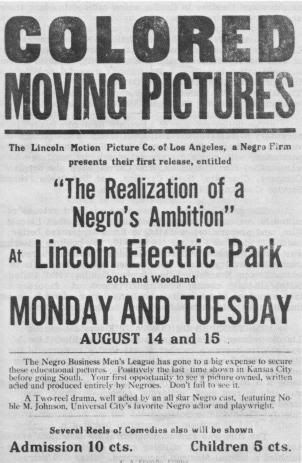
1916
Bahamian-born African-American comedian and singer Bert Williams was a phenomenally popular figure in the field of American theatrical entertainment during his heyday in the first two decades of the twentieth century.
Williams, who wore blackface makeup over his own black face to conform to the racist theatrical stereotypes of the era, was in many ways a tragic figure. He worked in the genre of the blackface minstrel show, which was one of the key components of a longstanding attempt by white Americans to degrade Americans of African descent. Yet Williams made comedy out of the sadness he felt behind the mask, creating hard-luck stage characters and songs that appealed to a wide cross-section of audiences. In terms of the development of African-American opportunities in American show business, Williams was widely recognized as a pioneer. He was the first Black person to produce, write, direct and star in two Biograph films. At the time no film studio had ever given a Black person full control of his own films.
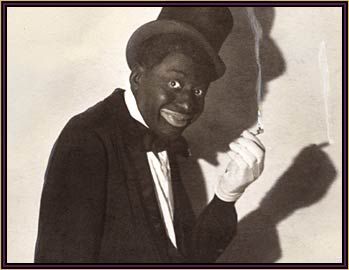
1929
In 1929 we see reach a major milestone. “Hearts in Dixie” and “Hallelujah” are the first films Hollywood films with an all-Black cast.
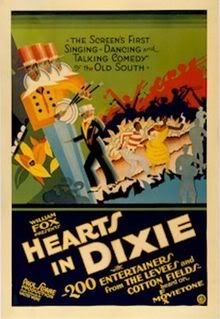
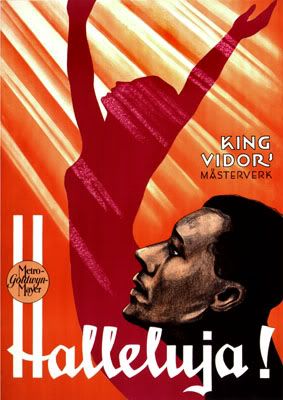
1931
Oscar Micheaux’s “The Exile” is the first feature length sound “talkie” film from a Black director.
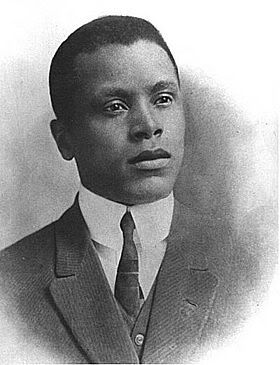
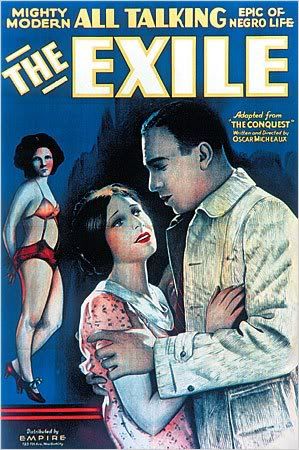
1940
Hattie McDaniel becomes the first Black actor to win an Academy Award. She was named best supporting actress for her role as “Mammy in Gone with the Wind.” She was the first Black actor to ever be nominated AND the first Black actor to attend the awards ceremony. It would be another ten years before another African-American (Ethel Waters) would be nominated.
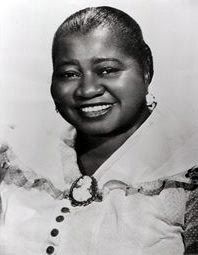
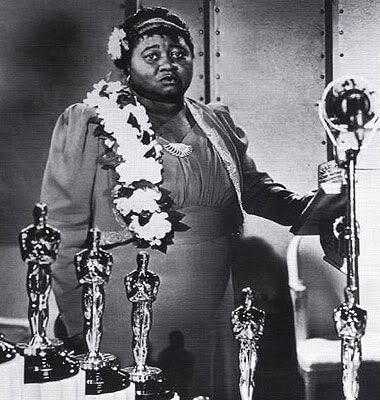
1942
Lena Horne becomes the first Black actress to sign a long-term contract (MGM). Unfortunately she was only cast in parts that could be cut when the films were shown in theaters in the South.
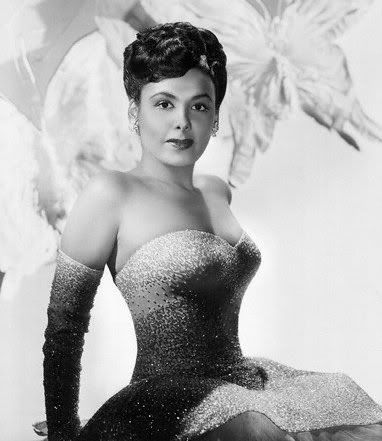
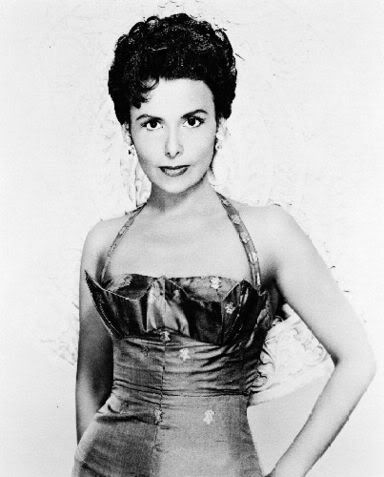
1946
“Song of the South” Disney’s first live action feature film, which was based on the Uncle Remus stories, was released. Protests about the stereotypical depiction of Black and the romanticizing of slaver prevented the film from ever being released in the U.S. on home video.
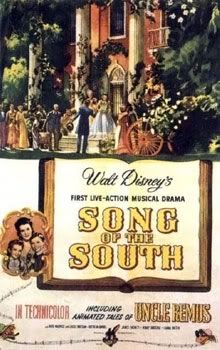
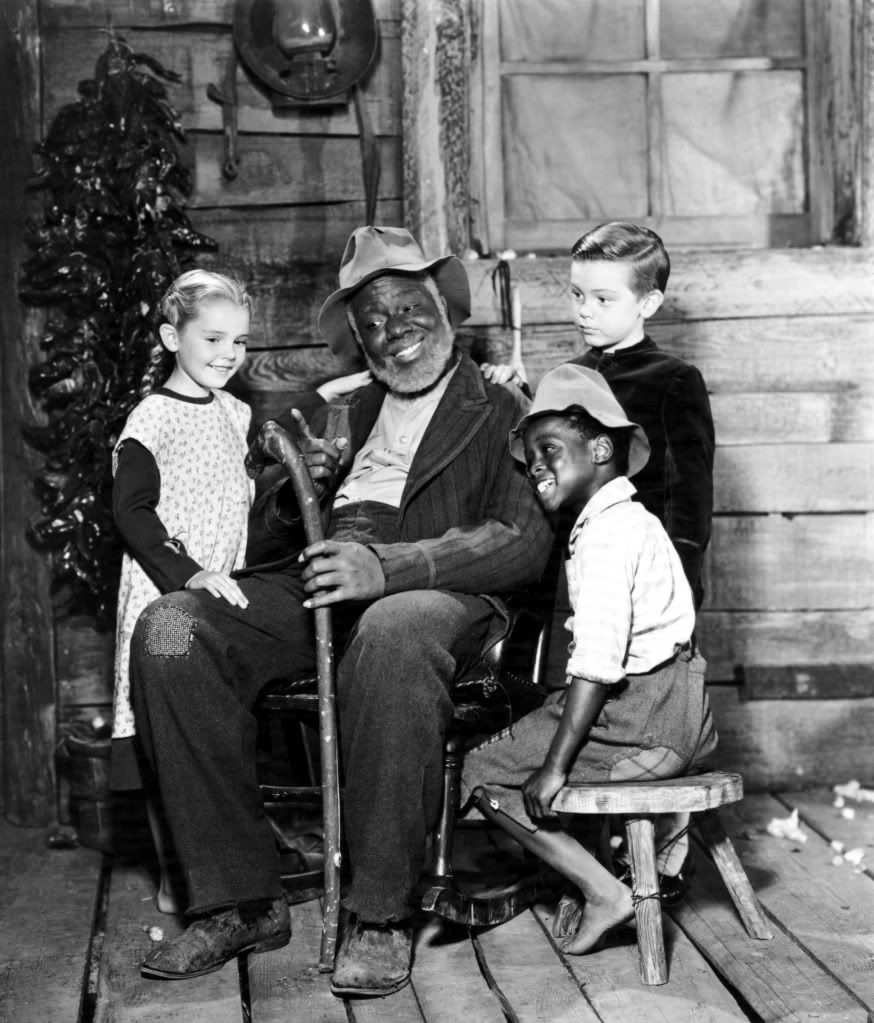
1955
Dorothy Dandridge played the title role in “Carmen” and became the first African-American to be nominated for an Oscar for Best Actress.
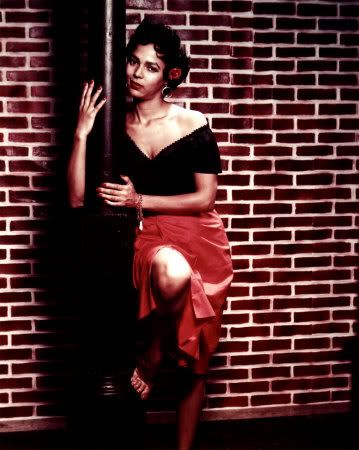

1957
The film “Island in the Sun” is released and features a ground-breaking kiss. The film takes place on the hypothetical Caribbean Island of Santa Marta, a former French plantation colony which is now a country administered by a British elite. At the time of its release, the film was very avant-garde in its exploration of racial tension and interracial romances; in particular, an on-screen interracial kiss between Dorothy Dandridge and her White co-star attracted a great deal of attention in the U.S.
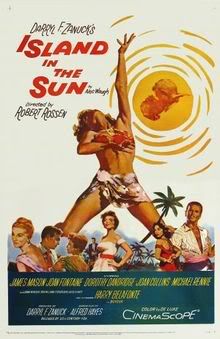
1964
History is made! Sidney Poitier becomes the first Black actor to win an Oscar for Best Actor his role in “Lillies in the Field.” He was also nominated in 1958 for his performance in “The Defiant Ones.”
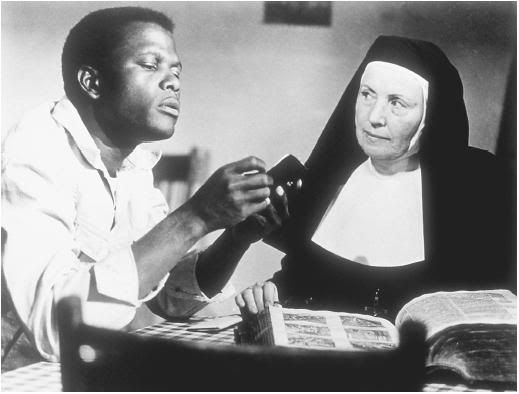
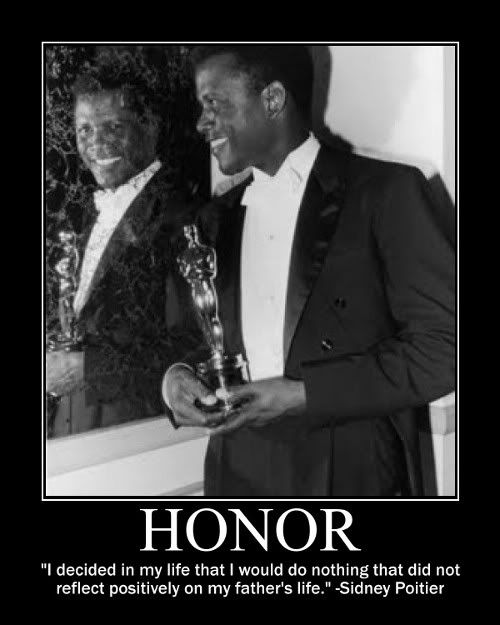
1969
With “The Learning Tree” Gordon Parks becomes the first African-American director of a major film for a major studio. Mr. Parks also directed Shaft in 1971.
1970
James Earl Jones is nominated for an Academy Award for Best Actor in a Leading Role for his performance in “The Great White Hope.”
1971
It’s Blaxploitation, you dig?! The Blaxploitation films begin with the release of Melvin Van Peeples’ Sweet Sweetback's Baadasssss Song and Gordon Parks’ Shaft. The Blaxploitation film genre emerged in the when many exploitation films were made specifically (and perhaps exclusively) for an untapped audience of urban Black people. The word itself is a combination of the words "black" and "exploitation," and was coined in the early 1970s by Los Angeles NAACP head (and ex-film publicist) Junius Griffin. Blaxploitation films were the first to feature soundtracks of funk and soul music and starred primarily Black actors. Blackploitation films were extremely successful commercially; so much so that independent and major film studios ended up releasing more than 200 movies during the 1970’s.
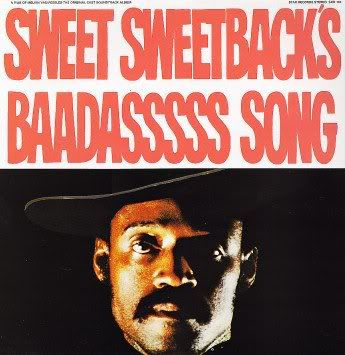
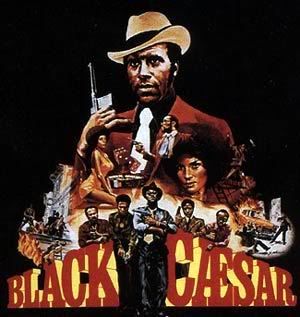
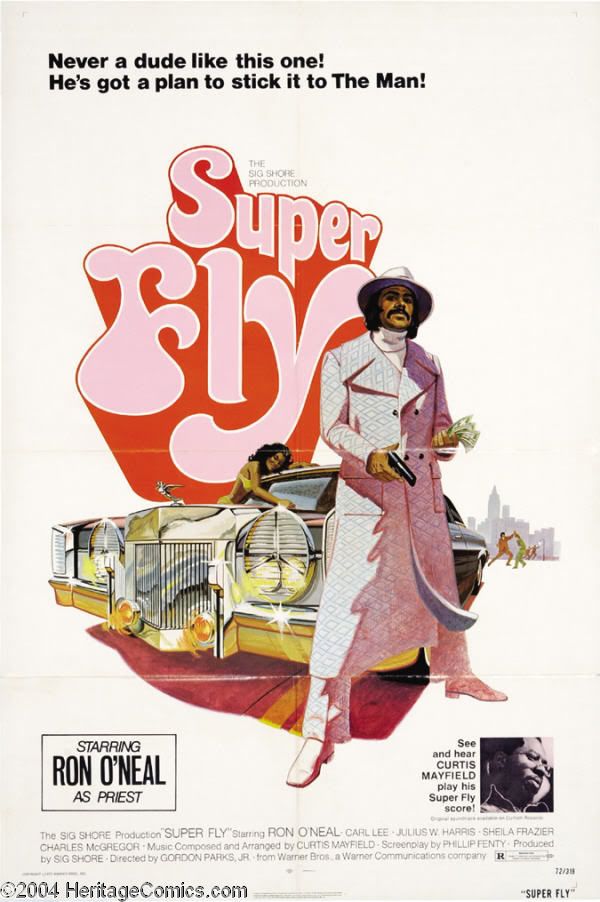
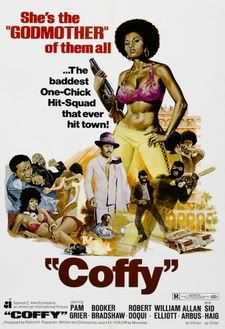
1973
Onyx continues to shine and our radiance is doubled. In this year two African-Americans are nominated for Best Actress Oscars – Diana Ross for “Lady Sings the Blues” and Cicely Tyson for “Sounder.” The men put in work too and Paul Winfield was nominated for the Best Actor Oscar. In this year, Black screenwriters also took center stage. Lonnie Elder, was nominated for Best Screenplay (adapted) for Sounder and Suzanne de Pass, was co-nominated for Best Screenplay for Lady Sings the Blues.
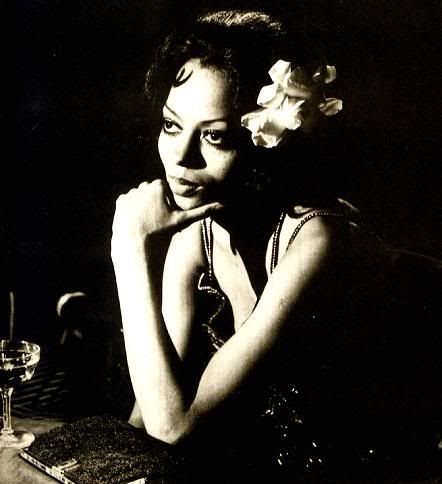
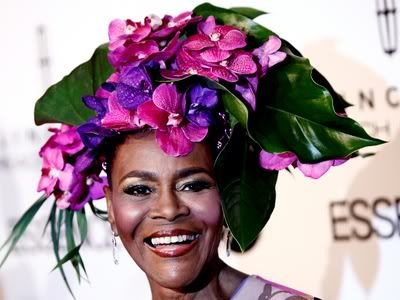
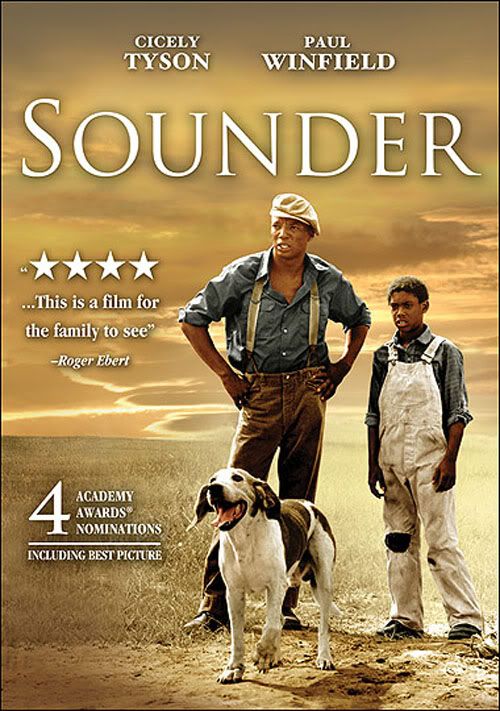
1971
The Oscars get some onyx! In this year Sammy Davis, Jr. co-hosts the prestigious awards ceremony with Helen Hayes, Alan King, and Jack Lemmon. Diana Ross co-hosts in 1974, Sammy Davis, Jr. returns to co-host in 1975 and Richard Pryor co-hosts in 1977 and 1983. In 1994 Whoopi Goldberg becomes the first solo host of the Oscars, followed by Chris Rock in 2005.
1974
Diahann Carroll is nominated for the Academy Award for Best Actress in a Leading Role for “Claudine.”
1982
It’s Blockbuster status! Eddie Murphy becomes the first Black actor to earn $1 million in a film debut.
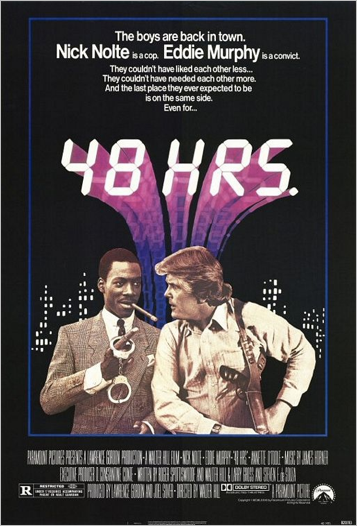
Also that year Louis Gossett, Jr. wins the Academy Award for Best Supporting Actor for his performance in “An Officer and a Gentleman.” He was the first Black actor to ever win this award.
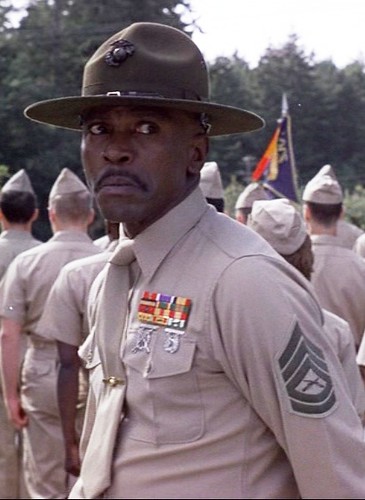
1984
African-American screenwriter Charles Fuller is nominated for Best Screenplay (adapted) for A Soldier's Story. Adolph Caesar is nominated for the Best Supporting Actor Oscar.
1985
Quincy Jones produces “The Color Purple” is nominated for the Academy Award for Best Picture. This is the first black person to be nominated for Best Picture. Oprah Winfrey is also nominated as Best Supporting Actress.
1989
Spike Lee makes his major studio debut with “Do the Right Thing” earning him an Academy Award nomination for Best Original Screenplay.
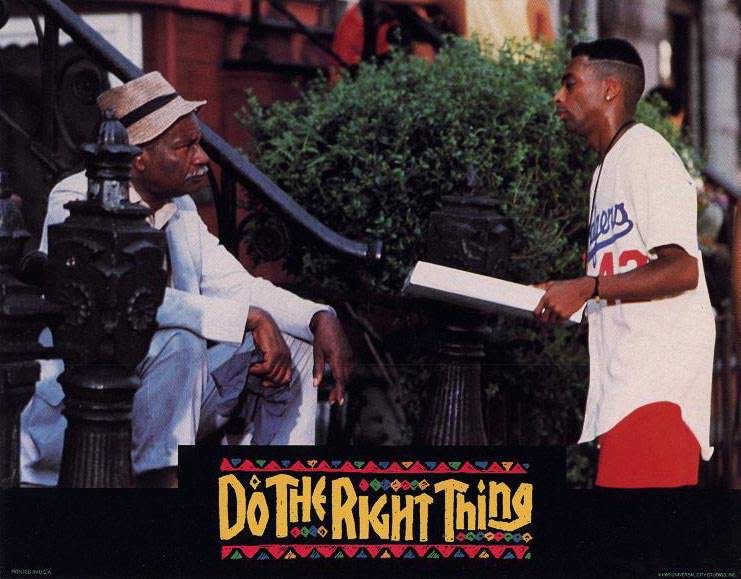
This is also the year that earned Morgan Freeman an Oscar nomination for Best Actor in a Leading Role for “Driving Miss Daisy.” He was also nominated for Best Actor in a Leading Role for his portrayal of Red in “The Shawshank Redemption” in 1994.

1991
“Boyz N the Hood” writer and director John Singleton becomes the first African-American to receive an Oscar nod for Best Director. He’s the youngest person (Black or White) to ever be nominated in that category. Singleton was also nominated for Best Writing, Screenplay Written Directly for the Screen. “Boyz N the Hood” received a considerable amount of critical praise during its release, and many Hollywood celebrities were angry that the film was snubbed for a Best Picture nomination. In 2002, the United States Library of Congress deemed the film "culturally significant" and selected it for preservation in the National Film Registry.[3]
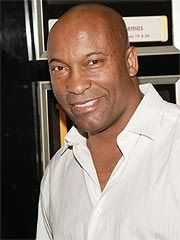
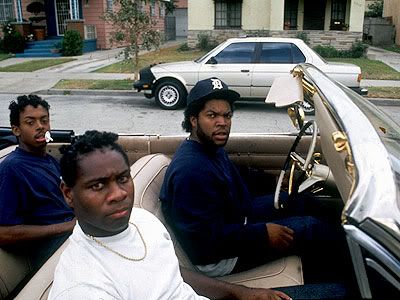
1994
Laurence Fishburne is nominated for Best Actor and Angela Bassett is nominated for Best Actress for their performances in “What's Love Got to Do with It.” Ms. Bassett won the Golden Globe Award for Best Actress – Motion Picture Musical or Comedy for her performance in this film.
1996
Cuba Gooding, Jr., wins best supporting actor for Jerry Maguire. At 29, he became the youngest black actor to win an Academy award.
The multi-talented Queen Latifah She was nominated is a definite star. In addition to her musical talent and multiple Grammy nominations, she also shines on the big screen. In 1996 she was nominated for NAACP Image Award for Outstanding Actress in a Motion Picture in 1996 for “Set It Off” and has been nominated almost every year since. In 2005 she was nominated for an Academy Award, Golden Globe Award and a Screen Actors Guild Award for Best Supporting Actress for her performance in “Chicago.”
2001
Denzel Washington is the first Black actor to receive five acting nominations overall. He is also the first black actor to receive three Best Actor nominations (Malcom X, The Hurricane and Training Day). Will Smith receives an Oscar nomination for Ali.
2002
It’s a golden year! Denzel Washington wins the Best Actor Oscar for his performance in Training Day and Halle Berry wins the Best Actress Oscar for her performance in Monster’s Ball. This is the first time in Oscar history that an African –American actress has won the prestigious award for this category and only the second time for an African-American male.

2004
Grammy Award winning musician Jamie Foxx won the Best Actor Oscar for his performance in Ray. For his stellar portrayal of Ray Charles he also won the BET Award for Best Actor, NAACP Image Award for Outstanding Actor in a Motion Picture, Golden Globe Award for Best Actor – Motion Picture Musical or Comedy and the Screen Actors Guild Award for Outstanding Performance by a Male Actor in a Leading Role. There’s no rest for the weary; and there was no stopping Jamie Foxx. During the same year he also won the BET Award for Best Supporting Actor and was nominated for the Academy Award for Best Supporting Actor and Golden Globe Award for Best Supporting Actor – Motion Picture for his performance in “Collateral,” making him the first Black actor to receive two acting nominations in the same year; first black actor to win for a musical
In addition to his lead roles he also nominated the for Golden Globe Award for Best Actor – Miniseries or Television Film for his performance in Redemption: The Stan Tookie Williams Story. Mr. Foxx also received multiple nominations for his work in Dreamgirls.
Also in 2004, Morgan Freeman wins the Academy Award for Best Actor in a Supporting role for “Million Dollar Baby.”
2006
Jennifer Hudson wins and Oscar for Best Actress in a Supporting Role for playing Effie White in Dreamgirls. She was the youngest black actress to win an award (age 25). Dreamgirls also garnered Screen Actors Guild Awards for Supporting Actress (Jennifer Hudson) and Supporting Actor (Eddie Murphy), as well as a nomination for its ensemble cast. For the 2007 Golden Globe Awards, Dreamgirls was nominated in five categories: Best Picture - Comedy or Musical, Best Actress in a Comedy or Musical (Beyoncé Knowles), Best Supporting Actor (Eddie Murphy), Best Supporting Actress (Jennifer Hudson), and Best Original Song ("Listen"). The film won the awards for Best Picture - Comedy or Musical, Best Supporting Actor, and Best Supporting Actress. Dreamgirls received eight NAACP Image Award nominations, winning for Best Supporting Actress (Jennifer Hudson) and Outstanding Album (the soundtrack LP).
Also in 2006 Forest Whiatker wins the Oscar for his riveting performance and portrayal of Idi Amin in ‘The Last King of Scotland.”
2008
Mega Super Star Will Smith stars in “Hancock” marking his 8th straight $100 million dollar movie. Will Smith is one of the most successful African-American actors, writers and producers in history.
2009
So Precious! Precious, the film with lots of buzz also garnered lots of recognition from the Academy Awards. Mo'Nique won for Best Actress in a Supporting Role and Gabourey Sidibe (in her acting debut) was nominated for Best Actress. Geoffrey Fletcher was the first African-American screenwriter to win an Oscar for screenwriting (adapted) for Precious. It was his first produced screenplay. Lee Daniels is the first black director to be nominated for Best Picture.
Broderick Johnson was also nominated for “The Blind Side” making this first time two Black producers were nominated for Best Picture.
2011 And Beyond…
Greatness will continue to be achieved. And our Black Jewels will continue to shine. The possibilities are endless!
|
|
|
|
Post by Sapphire on Feb 25, 2011 14:57:40 GMT -5
Love that dress Lizzy!!
|
|
|
|
Post by Julie Art on Feb 25, 2011 15:01:20 GMT -5
Wonderful presentation!
|
|
|
|
Post by Sapphire on Feb 25, 2011 15:04:05 GMT -5
Thanky!
|
|
|
|
Post by Sapphire on Feb 25, 2011 15:06:03 GMT -5
*The room goes dark again, then stepping out into the spotlight is AKA to recite a poem*
|
|
|
|
Post by Julie Art on Feb 25, 2011 15:26:45 GMT -5
*steps forward to the spotlight. Goes into best e-actress ever mode*
|
|
|
|
Post by Sapphire on Feb 25, 2011 15:28:24 GMT -5
* Sapphy returns to the stage.*
Wasn’t that fabulous! Thank you Lizzy for such a moving performance! Let’s give her another round of applause.
As you can see we have the portraits of several famous and lesser-known African-American actors, actresses, directors and entertainers placed around the room. Next to each picture we have provided more information about each person and his or her achievements. We hope they educate and inspire you.
There are several actors and actresses that were not highlighted in our timeline video presentation. This in no way reflects our feelings or lessens their contributions. As such, at this time we invite you, e-sorors as well as members of the audience to stand and tell us about your favorite African-American actor/actress, director or movie, or to just share your thoughts about Blacks in the arts. There are several microphones available and everyone is encouraged to participate.
*leaves the stage*
|
|
|
|
Post by Southie on Feb 25, 2011 15:43:35 GMT -5
Enjoys the event. <<sings a few songs <<Zphi! Attachments:
|
|
|
|
Post by Sapphire on Feb 28, 2011 16:35:39 GMT -5
P* Realizes I never closed this out, so lemme do that now. LOL
P*
*For the next 20-30 minutes OO e-Sorors and guests in the audience discuss influential Blacks in film, including Eddie Murphy, Taraji P. Henson, Anika Noni Rose, Jill Scott, Lynn Whitfield, Morris Chestnut, Terrence Howard, Don Cheadle, Halle Berry, Forrest Whitaker, Denzell Washington, Regina King, Jamie Foxx, Will Smith, Jada Pinkett-Smith, Laurence Fishburn, Spike Lee, Ruby Dee, Andre Braugher and many others.*
*Afterwards, the members of Omega Omicron gather on the stage. Chal steps forward*
Thank you! Inspirational, Legendary, Dynamic, Moving, Talented, Awesome Jewels... we salute you!
*The audience starts cheering and clapping. Chal continues speaking*
Thank you for your song, craft, creativity, words, skill, hope, intelligence, talent, imagination, patience, energy and courageous spirit. Shine Onyx Shine! Your light will brightens our hopes and dreams, and paves the way to greatness.
*Each OO member calls out the names of an African-American actor, actress, director, screenwriter or movie they admire*
Black Jewel... This is our tribute to you!!
*The crowd stands applauds again. Then Chal continues*
Thank you all for coming. We appreciate you taking the time to celebrate Black History Month with us. This ends our formal program. We hope you were educated, motivated and inspired. We invite you to mix and mingle, enjoy the food and drinks, and to spend time networking out in the reception area. YOU are a part of history and we hope you continue to shine. Thank you!
|
|